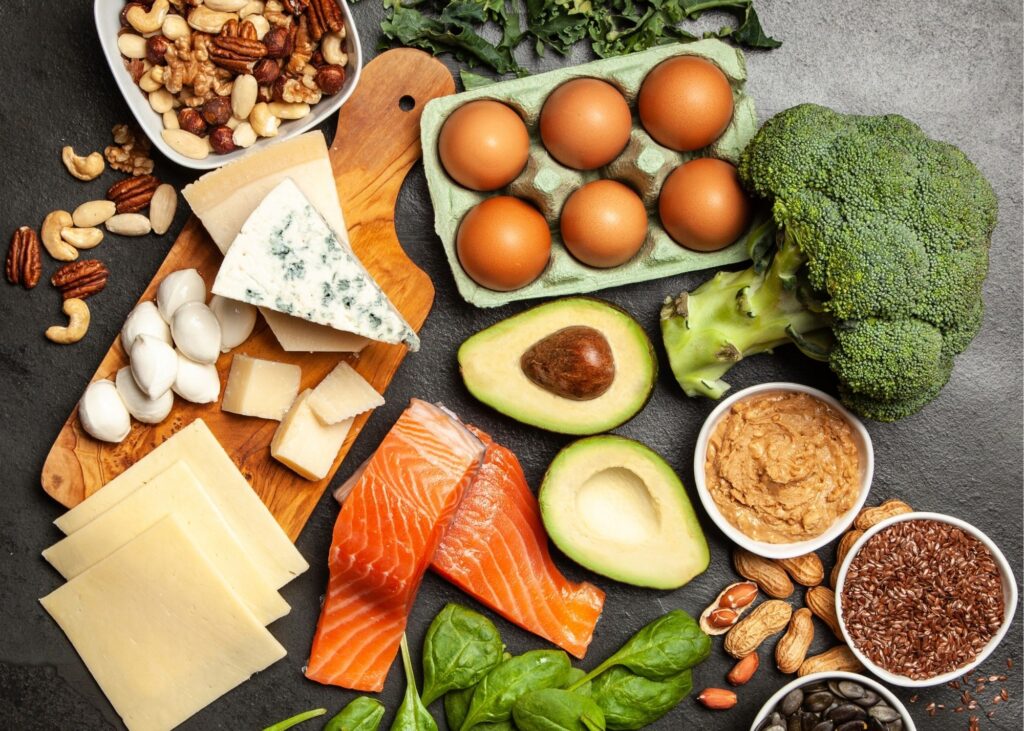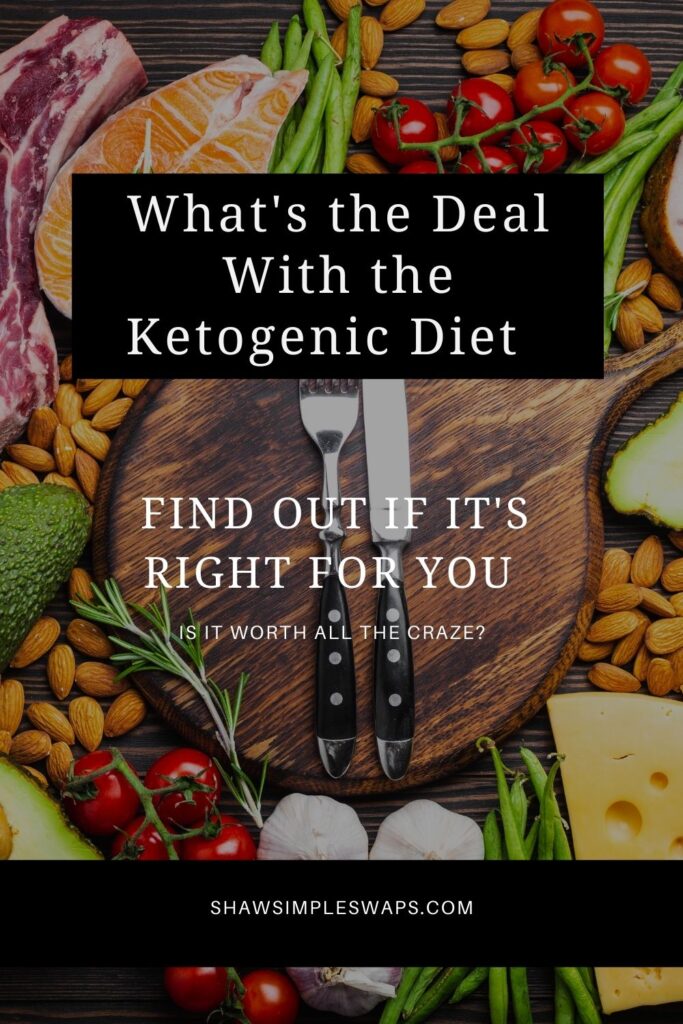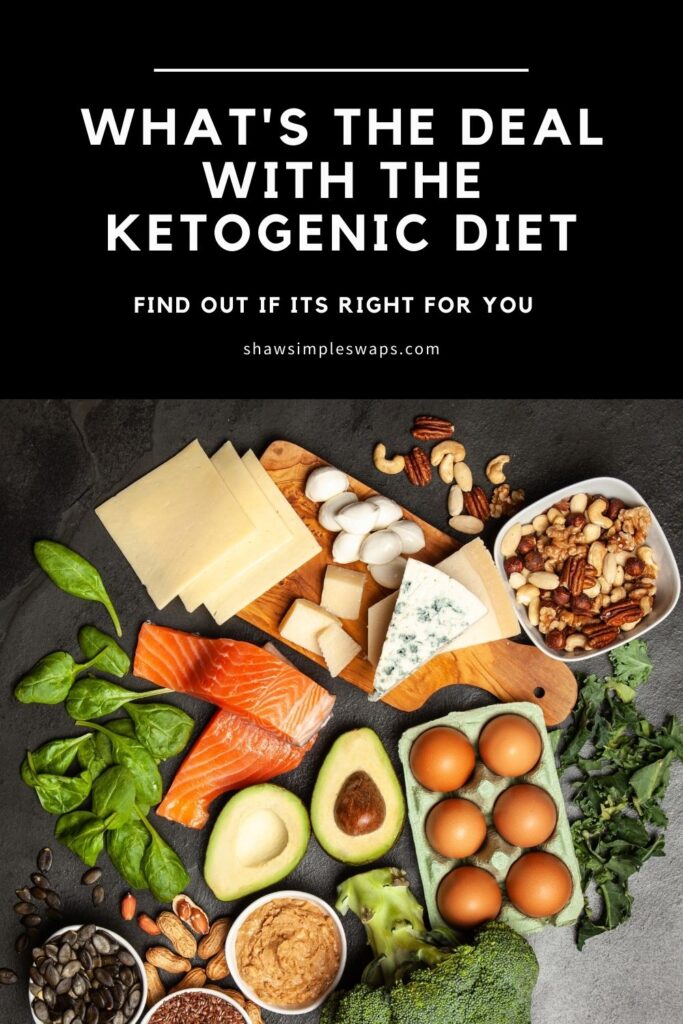How many times have you heard someone talking about the ketogenic diet? While this diet has gained loads of attraction the past few years, it’s not everything the media cuts it out to be. Let’s explore what the research says and see if the ketogenic diet is really worth all the hype.

WHAT IS THE KETOGENIC DIET?
The ketogenic diet is a low-no-carb, high-fat diet. Since our body’s main source of energy is glucose, and glucose is broken down from the carbohydrate based food we eat.
When we are not eating carbohydrates, our bodies will start to use and break down stored fat, which is known as ketone bodies. This process is known as ketosis, and the cells in our body will use ketone bodies as a main source of energy until we start eating carbohydrates again.
How does the Keto Diet Work?
As I said above, our bodies naturally get all of the energy we need from glucose. But, when we starve our bodies of carbs they then turn to get energy from our fat stores. When this begins to happen, it is known as a state of ketosis.
In order for our body to go into ketosis, these factors are typically present:
- Carbohydrate intake lower than 20 to 50 grams of carbs per day
- A high fat diet, with 90% fat, including saturated fats
After a few days of eating this way, and your body is solely using fat stores for energy, you will begin to feel symptoms known as the “keto flu”, that include headaches, fatigue, constipation, and irritability.
Foods Avoided on a Ketogenic Diet
Here are the main foods that are avoided on a keto diet:
- sugary foods: soda, fruit juice, smoothies, cake, ice cream, candy, etc.
- grains or starches: wheat-based products, rice, pasta, cereal, etc.
- fruit: all fruit, except small portions of berries like strawberries
- beans or legumes: peas, kidney beans, lentils, chickpeas, etc.
- root vegetables and tubers: potatoes, sweet potatoes, carrots, parsnips, etc.
- low fat or diet products: low fat mayonnaise, salad dressings, and condiments
- some condiments or sauces: barbecue sauce, honey mustard, teriyaki sauce, ketchup, etc.
Foods Included on a Ketogenic Diet
The keto diet is full of:
- proteins like a variety of meats and seafood
- eggs
- full fat dairy products including milk, cheese, yogurt, etc.
- oils
- nuts and seeds
- non-starchy vegetables
Benefits of a Keto Diet
Not to burst your bubble here, so there are SOME benefits to this diet. Specifically, the ketogenic diet can be beneficial for certain disease states. However, it is NOT recommended to trial the ketogenic diet unless under the direct care of your physician if you have one of these conditions.
Epilepsy in Children
Research has found there may be some benefits to this diet, particularly for reducing seizures in children.
Brain Disorders
There is also be evidence that it is beneficial for other brain disorders, like Alzheimer’s and multiple sclerosis.
However, further research is needed, and while it may be helpful for brain disorders, it is mostly used for rapid weight loss. There is little to none scientific data regarding the safety of following this diet long-term. It’s actually marked severely unsustainable to follow for a long period time.
Cardiovascular Disease
Some research shows that in the short term this diet helps increase HDL-C (the good cholesterol), however in the long term there are implications relating to increasing LDL-C (the bad cholesterol). Further research is needed, but this eludes to the fact that this diet can contribute to a higher risk of heart disease. Mainly due to its high intake of saturated fat and cholesterol.
Cons of the Keto diet :
The short-term consequences, also known as the “Keto-flu” includes fatigue, headache, dizziness, nausea, vomiting, constipation, and low exercise tolerance.
Research states the main reason health care professionals do not recommend this diet due to its substantial rise in LDL-C (the bad cholesterol). Also, the long-term effects, such as hepatic steatosis, kidney stones, hypoproteinemia, and vitamin deficiency.
What Current Research Says about Going Keto
Since the Ketogenic Diet has been around for so long there is a ton of articles with contradictory information out there. That is why I have compiled the most prominent points that are currently being studies regarding this diet.
There is new evidence showing that ketone bodies are extremely potent to our bodies and could lead to adverse health affects.
- Our bodies end up storing too many ketones, which leads to out blood becoming too acidic and can damage the liver, kidneys, and brain. Left untreated, it can be fatal.
The most common attribute found in studies of the ketogenic does not have many long-term health outcome due, deeming the diet highly unsustainable.
- Due to the many restrictions of this, there are patterns leaning towards weight regain and weight fluctuations
It is too early to say this diet can help type 2 diabetes and cardiovascular disease, but there has been evidence showing improvements in clinical markers for overweight individuals with metabolic syndrome.
Is Keto the Right Diet for You?
Technically speaking the only person the ketogenic diet is right for our people with epilepsy to help control seizures. Even though the media attention the keto diet has fostered is towards the rapid weight loss, it is actually not the main premise behind this diet at all.
So, would you rather have quick results that are highly unsustainable and may put your health at risk long term, OR learn how to live a healthy balanced life?
Key Takeaways:
The main theme following the ketogenic diet is that while it usually results in short-term weight loss its unsustainable.
If you’re looking to lose 5-10 lbs, or want to learn how to eat healthier than I would conclude this diet isn’t for you. There are many healthier and more sustainable ways to keep off the weight. You can even try adding a heart healthy meatless Mondays to your week. Or, try my 21 day Added Sugar Challenge!
These would be simpler more sustainable changes. Rather than to shocking your body into eating less than 50g of carbs a day!
It’s also extremely dangerous if you currently have diabetes, heart disease, or any other comorbidities. If so, you should contact a healthy professional guide you.
Bottom line before you go jumping on the keto plan, consider the facts to a healthy lifestyle. Eat a variety of fruits and vegetables, lean sources of protein such as beans and nuts, fatty fishes like salmon, and healthy sources of carbohydrates like quinoa and farrow.
Cutting out natural wholesome foods and being consumed by following a list of food rules due to all the restrictions is not a way to live nor is it sustainable.
At the end of the day if you’re looking to keep that weight off for good a balanced lifestyle is your best bet!
Eating is not about being restrictive with yourself; this is not a sustainable way of living.
***Article written in conjunction with nutrition intern, Hailey Brandel.




Leave a Reply